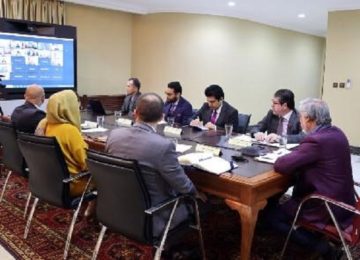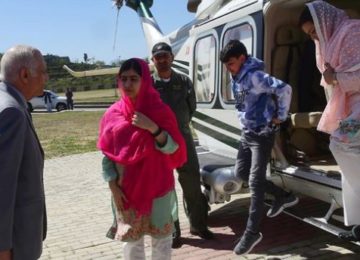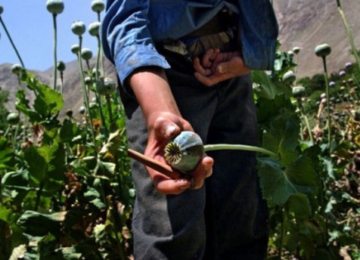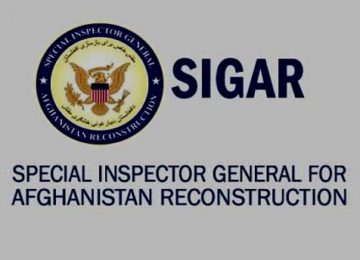Banned terror outfit blames army, intelligence agencies for continuing attacks on them
The Tehreek-e-Taliban Pakistan (TTP) on Monday said that they have called off a ceasefire agreed with the federal government in June and ordered its militants to stage terrorist attacks across the country, a statement from the banned terror outfit said.
The TTP, a separate entity from the Taliban in Afghanistan but sharing a similar hardline ideology, have been responsible for hundreds of attacks and thousands of deaths since emerging in 2007.
The government and the TTP had agreed to a truce earlier this year after Afghanistan’s new Taliban rulers took a prominent role in brokering peace talks, but negotiations made little progress and there were frequent breaches.
The Express Tribune had reported that the talks reached a deadlock as the terror group refused to budge from its demand for the reversal of the merger of erstwhile Fata with the Khyber-Pakhtunkhwa province.
There has also been a stalemate over the issue of TTP laying down their arms in case of a peace deal, which would enable them to return to their homeland.
Sources familiar with the development revealed that there had been a series of meetings between the two sides in recent weeks to break the impasse yet there had been no breakthrough so far.
In a push to take the process forward, a delegation of Ulema led by Mufti Taqi Usmani visited Kabul in July. The purpose of the scholars’ group’s visit was to use the good offices of the religious clerics to persuade the TTP to withdraw their demand for Fata merger and other contentious issues.
However, the TTP leadership did not give any firm assurance as the Ulema also pressed them to lay down their arms and return to Pakistan.
“We… have shown our continued patience so that the negotiation process is not sabotaged,” the TTP said in the statement.
“But the army and intelligence agencies do not stop and continue the attacks, so now our retaliatory attacks will also start across the country.”
The TTP claimed that there have been constant operations on its militants by the security forces and they have not been stopped despite the “patience” shown by it.
“Wherever you find an opportunity to attack, do proceed,” the statement urged its terrorists.
Pakistan began talks with the TTP in October last year at the request of the Afghan Taliban to seek a political solution to the issue.
The initial contacts led to a one-month ceasefire between the two sides in November but the truce could not last long as differences emerged soon.
The TTP sought the release of prisoners including some hardcore members who were involved in terrorist attacks. Pakistan did release certain TTP members but the process could not move forward.
The breakdown in talks led to a spike in cross-border terrorist attacks by the TTP. In April, two dozen Pakistani security forces were martyred in a series of cross-border attacks. Some of the attacks filmed by the TTP showed the terrorists using sophisticated weapons.
The increase in attacks prompted Pakistan to launch air strikes across the border targeting the TTP’s hideouts. Islamabad also in a rare move issued a stern warning to the Afghan Taliban not to allow Afghan soil to be used against the neighbouring country.
The warning coupled with air strikes compelled the Afghan Taliban to bring the TTP once again to the negotiating table. The renewed talks brokered the ceasefire and both sides agreed to take the process forward.
At a closed-door briefing for the members of parliament, the military leadership said the fear of TTP militants joining Da’ish was the primary reason Pakistan was seeking a peace deal with the TTP.
Islamabad fears that if the TTP or its splinter groups join Da’ish, it would multiply Pakistan’s security challenges. Pakistan is also concerned that this scenario will be exploited by external players including India.
Pakistan was hoping that a peace deal with the TTP or its certain breakaway factions would weaken the terrorist network. Also, Pakistan gave peace a chance as the Afghan Taliban were not willing to take any action against the TTP.
According to Pakistani authorities’ assessment, the talks were not progressing well and Pakistan was ready for any eventuality.
The sticking point remained the Fata reforms which the TTP vehemently opposed. Pakistani interlocutors had told the TTP in clear terms that the FATA merger with K-P was the result of bipartisan consensus and it was done through the constitutional amendment.
The military, which is spearheading the talks with TTP, had assured parliament that any peace deal with the terrorist outfit would be strictly in conformity with the Constitution.
Analyst Saad Khan, a Peshawar-based retired brigadier, played down the significance of the TTP statement saying the ceasefire was barely observed anyway.
“The Afghan Taliban have assured the whole world that they will not allow their territory to be used against any other country,” he told AFP.
“It is important to initiate serious negotiations with the Afghan Taliban on this issue and make them aware of the seriousness of the matter.”
(With additional input from AFP)
Source: Express Tribune
November 29, 2022








